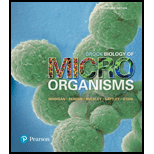
Concept explainers
To explain:
The importance of innate immunity upon adaptive immunity. Also, explain the survival of an individual in an immunity free normal environment.
Concept introduction:
Immunity can be defined as the ability of an individual to resist the infections. Two types of immunity have been categorized in human beings-innate immunity and adaptive immunity. Innate immunity can be defined as the built-in capacity of immune systems of organisms to target or kill pathogens regardless of their specific identity. Adaptive immunity is a type of immunity which is produced upon exposure to specific pathogens.
Explanation of Solution
Innate immunity is a non-specific type of immunity and can be referred as the first line of defense mechanism. This type of immunity is present since birth and the cells which are involved in providing innate immunity fight against foreign pathogen and completely eradicate them. The innate immune system helps in the protection against pathogen and further directs the process to adaptive immunity. Until the activation of an adaptive type of immunity, only the innate type of immunity provides protection to individuals. Hence, innate immunity is the first line of defense and is very important.
Both innate and adaptive immunity play a vital role in the protection of body from various types of infections. Thus, both the forms of immunity are equally important.
Organisms cannot survive in a normal environment without immunity and immune system. Immunity is very essential for normal
Want to see more full solutions like this?
Chapter 26 Solutions
Brock Biology of Microorganisms (15th Edition)
- Distinguish susceptibility from resistance, and innate from acquired immunity. Why are these traditionally recognized types of immunity now more difficult to distinguish?arrow_forwardContrast cell – mediated immunity with antibody – mediated immunity. Make sure to note: which cells are involved, how they are involved, and the end result of each type of immunity. Why is adaptive immunity called an “antigen-specific response”?arrow_forwardAcquired or adaptive immunity can be divided in to Natural Active, Natural Passive, Artificial Active, and Artificial Passive Immunity. Which types will lead to long lasting immune protection? Which will provide short term protection?arrow_forward
 Human Biology (MindTap Course List)BiologyISBN:9781305112100Author:Cecie Starr, Beverly McMillanPublisher:Cengage Learning
Human Biology (MindTap Course List)BiologyISBN:9781305112100Author:Cecie Starr, Beverly McMillanPublisher:Cengage Learning Biology (MindTap Course List)BiologyISBN:9781337392938Author:Eldra Solomon, Charles Martin, Diana W. Martin, Linda R. BergPublisher:Cengage Learning
Biology (MindTap Course List)BiologyISBN:9781337392938Author:Eldra Solomon, Charles Martin, Diana W. Martin, Linda R. BergPublisher:Cengage Learning Human Physiology: From Cells to Systems (MindTap ...BiologyISBN:9781285866932Author:Lauralee SherwoodPublisher:Cengage Learning
Human Physiology: From Cells to Systems (MindTap ...BiologyISBN:9781285866932Author:Lauralee SherwoodPublisher:Cengage Learning Biology: The Dynamic Science (MindTap Course List)BiologyISBN:9781305389892Author:Peter J. Russell, Paul E. Hertz, Beverly McMillanPublisher:Cengage Learning
Biology: The Dynamic Science (MindTap Course List)BiologyISBN:9781305389892Author:Peter J. Russell, Paul E. Hertz, Beverly McMillanPublisher:Cengage Learning Human Heredity: Principles and Issues (MindTap Co...BiologyISBN:9781305251052Author:Michael CummingsPublisher:Cengage Learning
Human Heredity: Principles and Issues (MindTap Co...BiologyISBN:9781305251052Author:Michael CummingsPublisher:Cengage Learning





